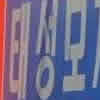Introduction to the Korean Language and Alphabet (Hangul) Lesson
By Learn Korean Admin - 25/04/2024
<< Previous Lesson
Next Lesson >>
Welcome to Hangul: The Gateway to Korean Language Mastery
Embark on a journey to learn Hangul, the ingenious alphabet of the Korean language. Designed for clarity and efficiency, Hangul is your first step toward embracing the rich linguistic and cultural heritage of Korea. This guide provides an in-depth look at the basic principles of Hangul, complete with examples in Korean and Konglish.
 The Building Blocks of Hangul
The Building Blocks of Hangul
Hangul Consonants: The Foundation
Hangul starts with 14 basic consonants that are intuitive, mimicking the shape of the speaker's mouth. These sounds lay the groundwork for forming words and are crucial for beginners to master.
Examples:
ㄱ (g/k) as in 고기 (gogi, meaning "meat")
ㄷ (d/t) as in 도시 (dosi, meaning "city")
Mastering Hangul Vowels: The Essence of Expression
With 10 basic vowels that are elegantly simple, Hangul's vowels convey a wide range of emotions and are essential for constructing meaningful phrases.
Examples:
ㅏ (a) as in 사과 (sagwa, meaning "apple")
ㅓ (eo) as in 서울 (Seoul, the capital city of Korea)
Syllable Blocks: The Soul of Hangul
What truly sets Hangul apart is its unique syllable block structure. Consonants and vowels are combined into square blocks, each representing a single syllable. This logical arrangement reflects spoken Korean, making it accessible for learners.
Examples:
한 (han) from 한국 (Hanguk, meaning "Korea")
글 (geul) from 한글 (Hangul, meaning "Korean alphabet")
Practical Konglish Examples:
Konglish refers to the use of English words that have been incorporated into the Korean language, often with Hangul spelling. These examples showcase the versatility of Hangul in adapting to modern language trends.
택시 (taeksi, meaning "taxi")
컴퓨터 (keompyuteo, meaning "computer")
Why Learn Hangul?
Understanding Hangul is not just about learning a new alphabet; it's about connecting with Korean culture on a deeper level. Whether you're interested in K-pop, Korean dramas, or the nuances of Korean etiquette, Hangul is your key to a whole new world.
Your First Steps into Hangul Mastery Starting your Hangul learning journey can be both exciting and rewarding. With its scientifically designed alphabet and a rich cultural background to explore, Hangul offers an engaging learning experience for language enthusiasts around the globe.
Engage with Korean media: Listen to K-pop, watch Korean dramas, and immerse yourself in Korean content to naturally pick up vocabulary and pronunciation.
Practice writing and speaking: Regularly write out Hangul characters and practice speaking with native speakers or language exchange partners.
Use learning resources: Explore apps, websites, and textbooks designed specifically for Hangul learners to build your skills progressively.
Dive into the world of Hangul today and open the door to endless possibilities in understanding and appreciating the Korean language and culture.
This content is crafted to be informative, engaging, and SEO-friendly by targeting key phrases related to learning Hangul, providing valuable insights, and encouraging interaction with Korean and Konglish examples.
Exercise Questions and Answers
Consonants (Questions)
Q1: Write the Hangul consonant for the sound [k].
Q2: Which consonant sounds like [t]?
Q3: Identify the consonant that represents the sound [s].
Q4: What is the Hangul consonant for the [p] sound?
Q5: Choose the consonant that makes the sound [m].
Consonants (Answers)
A1: ㄱ
A2: ㄷ
A3: ㅅ
A4: ㅂ
A5: ㅁ
Vowels (Questions)
Q1: Write the Hangul vowel that sounds like [a].
Q2: Which vowel represents the sound [o]?
Q3: Identify the vowel that sounds like [u].
Q4: What is the Hangul vowel for the [i] sound?
Q5: Choose the vowel that makes the sound [e].
Vowels (Answers)
A1: ㅏ
A2: ㅗ
A3: ㅜ
A4: ㅣ
A5: ㅔ
Syllable Blocks(Questions)
Q1: Combine ㄱ (g) + ㅏ (a) to form a syllable.
Q2: What syllable is formed by combining ㅂ (b) + ㅣ (i)?
Q3: Create a syllable with ㅅ (s) + ㅓ (eo).
Q4: Which syllable comes from ㅁ (m) + ㅜ (u)?
Q5: Form a syllable using ㄴ (n) + ㅐ (ae).
Syllable Blocks(Answers)
A1: 가
A2: 비
A3: 서
A4: 무
A5: 내
Konglish Translations (Questions)
Q1: How do you write "coffee" in Hangul?
Q2: Translate "bus" into Hangul.
Q3: Write the Korean spelling for "internet".
Q4: How is "chocolate" spelled in Hangul?
Q5: Translate "pizza" into Hangul.
Konglish Translations (Answers)
A1: 커피 (keopi)
A2: 버스 (beoseu)
A3: 인터넷 (inteonet)
A4: 초콜릿 (chokollit)
A5: 피자 (pija)
<< Previous Lesson Next Lesson >>
Donate just £2 to use to help keep us FREE.


Learn Hangul: The Heart of the Korean Language
Meta Description: Unlock the secrets of Hangul, the Korean alphabet. Explore its consonants, vowels, and unique syllable blocks with practical examples in Korean and Konglish.Welcome to Hangul: The Gateway to Korean Language Mastery
Embark on a journey to learn Hangul, the ingenious alphabet of the Korean language. Designed for clarity and efficiency, Hangul is your first step toward embracing the rich linguistic and cultural heritage of Korea. This guide provides an in-depth look at the basic principles of Hangul, complete with examples in Korean and Konglish.
 The Building Blocks of Hangul
The Building Blocks of HangulHangul Consonants: The Foundation
Hangul starts with 14 basic consonants that are intuitive, mimicking the shape of the speaker's mouth. These sounds lay the groundwork for forming words and are crucial for beginners to master.
Examples:
ㄱ (g/k) as in 고기 (gogi, meaning "meat")
ㄷ (d/t) as in 도시 (dosi, meaning "city")
Mastering Hangul Vowels: The Essence of Expression
With 10 basic vowels that are elegantly simple, Hangul's vowels convey a wide range of emotions and are essential for constructing meaningful phrases.
Examples:
ㅏ (a) as in 사과 (sagwa, meaning "apple")
ㅓ (eo) as in 서울 (Seoul, the capital city of Korea)
Syllable Blocks: The Soul of Hangul
What truly sets Hangul apart is its unique syllable block structure. Consonants and vowels are combined into square blocks, each representing a single syllable. This logical arrangement reflects spoken Korean, making it accessible for learners.
Examples:
한 (han) from 한국 (Hanguk, meaning "Korea")
글 (geul) from 한글 (Hangul, meaning "Korean alphabet")
Practical Konglish Examples:
Konglish refers to the use of English words that have been incorporated into the Korean language, often with Hangul spelling. These examples showcase the versatility of Hangul in adapting to modern language trends.
택시 (taeksi, meaning "taxi")
컴퓨터 (keompyuteo, meaning "computer")
Why Learn Hangul?
Understanding Hangul is not just about learning a new alphabet; it's about connecting with Korean culture on a deeper level. Whether you're interested in K-pop, Korean dramas, or the nuances of Korean etiquette, Hangul is your key to a whole new world.
Your First Steps into Hangul Mastery Starting your Hangul learning journey can be both exciting and rewarding. With its scientifically designed alphabet and a rich cultural background to explore, Hangul offers an engaging learning experience for language enthusiasts around the globe.
Engage with Korean media: Listen to K-pop, watch Korean dramas, and immerse yourself in Korean content to naturally pick up vocabulary and pronunciation.
Practice writing and speaking: Regularly write out Hangul characters and practice speaking with native speakers or language exchange partners.
Use learning resources: Explore apps, websites, and textbooks designed specifically for Hangul learners to build your skills progressively.
Dive into the world of Hangul today and open the door to endless possibilities in understanding and appreciating the Korean language and culture.
This content is crafted to be informative, engaging, and SEO-friendly by targeting key phrases related to learning Hangul, providing valuable insights, and encouraging interaction with Korean and Konglish examples.
Exercise Questions and Answers
Consonants (Questions)
Q1: Write the Hangul consonant for the sound [k].
Q2: Which consonant sounds like [t]?
Q3: Identify the consonant that represents the sound [s].
Q4: What is the Hangul consonant for the [p] sound?
Q5: Choose the consonant that makes the sound [m].
Consonants (Answers)
A1: ㄱ
A2: ㄷ
A3: ㅅ
A4: ㅂ
A5: ㅁ
Vowels (Questions)
Q1: Write the Hangul vowel that sounds like [a].
Q2: Which vowel represents the sound [o]?
Q3: Identify the vowel that sounds like [u].
Q4: What is the Hangul vowel for the [i] sound?
Q5: Choose the vowel that makes the sound [e].
Vowels (Answers)
A1: ㅏ
A2: ㅗ
A3: ㅜ
A4: ㅣ
A5: ㅔ
Syllable Blocks(Questions)
Q1: Combine ㄱ (g) + ㅏ (a) to form a syllable.
Q2: What syllable is formed by combining ㅂ (b) + ㅣ (i)?
Q3: Create a syllable with ㅅ (s) + ㅓ (eo).
Q4: Which syllable comes from ㅁ (m) + ㅜ (u)?
Q5: Form a syllable using ㄴ (n) + ㅐ (ae).
Syllable Blocks(Answers)
A1: 가
A2: 비
A3: 서
A4: 무
A5: 내
Konglish Translations (Questions)
Q1: How do you write "coffee" in Hangul?
Q2: Translate "bus" into Hangul.
Q3: Write the Korean spelling for "internet".
Q4: How is "chocolate" spelled in Hangul?
Q5: Translate "pizza" into Hangul.
Konglish Translations (Answers)
A1: 커피 (keopi)
A2: 버스 (beoseu)
A3: 인터넷 (inteonet)
A4: 초콜릿 (chokollit)
A5: 피자 (pija)
<< Previous Lesson Next Lesson >>
Donate just £2 to use to help keep us FREE.


 Learn-Korean
Learn-Korean












